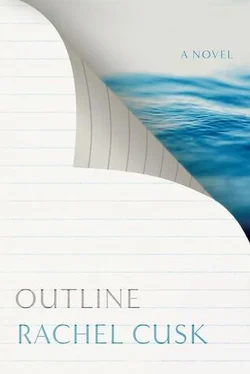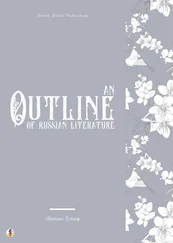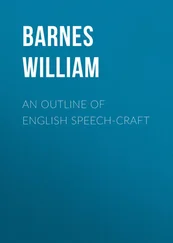I asked him what it was that brought him back from that interment, and he smiled. A phone call, he said. It was his second winter in London, and he was sunk in a dreary and lonely existence, trudging through the rain to work and back again, putting in eighteen-hour days at the bank and eating takeaways late at night in his carpeted prison, when the owner of the warehouse in Athens called him to say that there had been a break-in and that the boat’s engine had been stolen. The next day he handed in his resignation and was on a flight back. How refreshing it was, he said, how affirming, to feel such certainty. He had come almost to believe he was a person with no clear feelings about anything, particularly since the history of his loves had led him into such swamplands of failure, yet this attack on his property returned him to joy and life as though he had won the lottery. For the first time in years he knew what he wanted. The first thing he did, on his return, was buy the best engine he could find, though it did, he accepted, have a little more power than he needed.
We were by now approaching the marina, and he asked whether I wouldn’t like to stop for some coffee or a drink before we set sail. There was no need to hurry, after all; we had all the time in the world. He seemed to remember hearing there was a new place that had just opened, somewhere along the beach; he took his foot off the accelerator and dawdled, peering through the windscreen at the dusty roadside and its string of bars and restaurants, beyond which lay the sand and the water with its frill of surf. Abruptly he steered off into the dirt at the side of the verge and stopped, outside a place with palm trees in white cubic planters and a terrace open to the sea with arrangements of white cubic furniture. There was the sound of jazz, and waiters dressed in black were gliding around the empty furniture, in the shade of an asymmetric white canopy like a giant sail. He asked me if this was all right. I said it looked very impressive, and we got out of the car and went and sat at a table, beside one of the palm trees.
It was important, my neighbour said, to remember to enjoy yourself along the way: in a sense, this had become his philosophy of life these days. His third wife, he said, had been so puritanical that he sometimes felt no amount of pit-stops and pauses would make up for the years he spent with her, in which every event was faced head-on, unanaesthetised, and every little pleasure interrogated and either deemed unnecessary or else written down — with tax added on, he said — in a notebook she kept with her at all times for the purpose. Never had he met someone who was so unmediatedly the product of their family, a Calvinist household obsessed with thrift and the avoidance of waste, though she did, he said, have one weakness, for Formula One racing, which she would sometimes indulge by watching on television, being particularly riveted by the scenes of the winner spraying the cheering crowd with wasted champagne. He had met her at a time when his finances had been devastated by his second divorce, and so her song of parsimony had been, briefly, music to his ears. At the wedding, asked by friends what it was she saw in him — a pertinent enough question, he conceded, at the time — she had replied, I find him interesting.
He ordered two coffees from one of the circling waiters, and for a while we watched the people on the beach from our shady seclusion, their bare bodies smudged by the haze of heat, so that they looked somehow primordial, lying or moving slowly, half naked, along the shore. I said that it didn’t sound such a bad reason to marry someone, and he looked somewhat darkly out to sea. She knew nothing whatever of the physical side of life, he said, despite the fact that she was nearly forty when they met. Her purity and simplicity attracted him, after the knowing seductiveness of his second wife, but in fact she was a woman entirely without romance, entirely without sex, and the nun-like existence she had led previously — and as far as he knew, had resumed when they parted — was not the consequence of a lack of opportunity but was the accurate reflection of her nature. The intimate side of their marriage was an unmitigated disaster, for once they had conceived a child, which they did almost straight away, she simply could not understand why there was any further need for them to have relations. It was a blow for him, and one he tried hard to forestall, but one night she asked him very frankly how many more times she ought to expect that he would require her to participate in an act she evidently found unenjoyable as well as incomprehensible, and after that he lost heart.
Yet he did concede, he said, that through this woman he had had his first and only glimpse of a different kind of relationship, indeed a different kind of life, one that was based on principles he had never paid any heed to: decency, equality, virtue, honour, self-sacrifice, as well as thrift of course. She had a great deal of common sense, and an infallible grasp of discipline and routine and household management, and he found both his finances and his health in better order than they had been for years. Theirs was a calm and well-run home, with predictability — something he had always actively avoided, something he had, one could almost say, feared — as its cherished principle. She reminded him of his mother, and in fact it transpired that that was what she expected him to call her, ‘mother’, while she likewise would address him as ‘father’, for it was how her parents had always addressed one another and was all she knew. That was obviously, for him, another nail in the coffin, but all the same he had to admit that she was never exploitative, or silly, or selfish: she was and remains an excellent mother to their son, who is the only one of his children — he had again to admit — that he could call stable and well-adjusted. She did not attempt to destroy him in the divorce proceedings, but instead accepted her share of responsibility for what had happened, so that together they could work out the best way to arrange things, for themselves and their child. I realised, he said, that my whole understanding of life had been, in some sense, profoundly adversarial: the story of men and women, for me, was ultimately a story of war, to the extent that I wondered sometimes whether I had an actual horror of peace, whether I sought to stir things up out of a fear of boredom that was also, you might say, a fear of death itself. I said to you, when we first met, that I regard love — the love between man and woman — as the great regenerator of happiness, but it is also the regenerator of interest. It is what you perhaps would call the storyline — he smiled — and so, he said, for all the virtues of my third wife, I discovered that a life with no story was not, in the end, a life that I could live.
He paid the bill, waving away my offers of money after a brief but observable hesitation, and we stood to leave. In the car he asked how my class that morning had gone, and I found myself telling him about the woman who had attacked me, about my sense — all through the hour — of her growing resentment and anger and my increasingly certain knowledge that at some point she would strike. He listened, sombrely, as I relayed the details of her tirade, the worst aspect of which, I said, was its element of impersonality, which had caused me to feel like nothing, a non-entity, even while she was giving me, so to speak, her full attention. This feeling, of being negated at the same time as I was exposed, had had a particularly powerful effect on me, I said. It had seemed to encapsulate something that didn’t, strictly speaking, exist. He was silent for a while as we drove to the marina. He stopped the car and switched off the engine.
‘I was at home this morning,’ he said, ‘at home in my kitchen, making myself a glass of orange juice, and I suddenly had the very strong feeling that something bad was happening to you.’ He stared through the windscreen at the glittering water, where the white boats were moving up and down. ‘I find it quite extraordinary,’ he said, ‘this very clear signal that I received. I even remember looking at my watch: it must have been at exactly that time that I sent you the message asking if you would like to come out on the boat again today. Am I correct?’ I smiled and said that it was true, I had received his message at more or less exactly that moment. ‘That is very unusual,’ he said. ‘A very strong connection.’
Читать дальше












